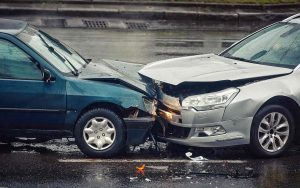Emergency situations in Florida car accidents include sudden medical events like seizures or fainting, unavoidable hazards such as debris or tire blowouts, and good-faith efforts by bystanders to render aid.
These situations can affect legal fault under Florida’s Sudden Emergency Doctrine, which may protect drivers and helpers from liability in certain cases. Additionally, Florida 14-Day Accident Law requires injury victims to seek medical care promptly to preserve their right to personal injury protection (PIP) benefits.
What You’ll Learn
In Florida, not all car accidents are straightforward — especially when emergencies are involved.
- A driver who blacks out from a heart condition
- A bystander who pulls someone from a burning vehicle
- A motorist who swerves to avoid hitting a pedestrian
These situations all involve unique legal and insurance considerations. Emergency circumstances can change how fault is assigned, whether compensation is awarded, and what steps you need to take right away to protect your legal rights.
In this article, we’ll break down:
- What legally counts as an emergency during a Florida car accident
How Florida’s Sudden Emergency Doctrine and Good Samaritan Law may apply
Why the 14-day rule could impact your claim
Real-world examples and legal guidance from experts
Answers to common questions and concerns Floridians face after an unexpected crash
Let’s start with what legally defines an “emergency” on Florida roads — and why it matters more than most people realize.
What Is an Emergency Situation in a Florida Car Accident?

In legal terms, an emergency situation refers to an unexpected, sudden event that puts a driver in a position where they must make an immediate decision to avoid harm. In Florida, courts recognize that not every crash results from negligence — sometimes, drivers face circumstances beyond their control.
Legal vs. Practical Definitions
Under Florida law, an emergency can excuse certain actions that would otherwise be seen as negligent. Practically speaking, these situations often include:
- Medical emergencies like seizures, fainting, diabetic shock, or heart attacks
- Unavoidable hazards such as a tire blowout, a pedestrian darting into the road, or swerving to avoid debris
- Mechanical failure when unexpected and unavoidable
- Bystander intervention, like someone rushing in to move a victim from a smoking vehicle
But not every emergency counts. Courts consider whether the driver could have reasonably foreseen the issue. For example, if you had chest pain earlier in the day and still chose to drive, a heart attack behind the wheel might not qualify as a legal emergency.
When an Accident Is Considered “Unavoidable”
Florida recognizes that accidents can happen even when someone acts reasonably under pressure. If a person reacts the way a “reasonably prudent driver” would — for instance, by swerving to avoid hitting a child or fainting from an undiagnosed medical condition — they may not be held liable under the Sudden Emergency Doctrine (more on this in the next section).
Drivers still have to prove that the emergency was real, sudden, and unforeseeable. This is where medical records and documentation become key.
The Sudden Emergency Doctrine: What It Is and When It Applies
Florida recognizes that even the most careful driver can be caught off guard by a medical emergency. That’s where the Sudden Emergency Doctrine comes in — a legal principle that may protect drivers from liability if an unexpected medical crisis caused the crash.
How Florida Interprets “Sudden Medical Emergency”
To invoke this doctrine, the emergency must be:
- Truly sudden — like fainting or a seizure behind the wheel
- Unforeseeable — meaning the driver had no warning or prior diagnosis
Unavoidable — the driver had no reasonable way to pull over or prevent the incident
If those conditions are met, the driver may not be found legally negligent.
The Burden of Proof Is on the Driver
Courts look at the details: Did the driver lose total control? Did they receive emergency medical treatment afterward? Is there a medical record showing the condition was new or undiagnosed? Without documentation, insurance claims and defenses can fall apart fast.
Why Foreseeability Matters
Let’s say a driver has a known heart condition and feels chest pain earlier in the day but drives anyway. If they crash after a heart attack, the court could find them liable — because the medical episode was foreseeable.
Key Insight: If you knew about your medical issue and chose to drive, this doctrine might not protect you — even if you passed out behind the wheel.
Medical Conditions That May Qualify as Emergencies
Medical emergencies that can trigger this legal protection include:
- Seizures
- Heart attacks
- Diabetic shock
- Strokes
- Sudden fainting or blackouts
The core element? Total loss of control. If a person simply “felt off” but remained conscious and alert, it may not qualify.
Why Timing Matters
The minutes after a crash matter just as much as the moments before it. If the emergency required immediate hospital care, it strengthens the legal defense. But if a driver claims to have blacked out and then refuses treatment, it raises doubts.
“I blacked out and didn’t even know I had a medical issue. Will I be blamed for the crash?”
You might not, but you’ll need to prove the condition was new, sudden, and documented.
Are You Protected?
Imagine pulling someone from a crashed car just before it catches fire. You acted quickly, instinctively — like a hero. But what if the person you helped later sues you for making their injuries worse?
Florida’s Good Samaritan Law Has Your Back
Florida’s law protects people who:
- Provide first aid
- Move a victim out of immediate danger
- Offer help without expecting compensation
You’re expected to act like a “reasonably prudent person,” not a medical professional.
What’s Not Protected: Gross Negligence
If you recklessly move someone with a spinal injury without recognizing the risks — or pretend to have medical training — the law may not cover you. Courts distinguish between good intentions and reckless actions.
New Legal Protections
In recent years, the law expanded to cover those who break into locked vehicles to rescue:
- Children
- Vulnerable adults
- Pets in danger
This reflects a growing awareness that timing can be life-saving.
Real-World Examples of Emergency Accident Scenarios
Let’s look at how emergency car accidents in Florida play out in real life — and what the law has to say about them.
Scenario 1: A Driver Has a Seizure While Driving
The vehicle veers off the road and hits a parked car. If the seizure was unexpected, and the driver had no known history of similar events, the Sudden Emergency Doctrine could protect them from being held at fault. But they must show medical proof that the condition was previously unknown.
Scenario 2: A Bystander Pulls Someone from a Smoking Car
A good-faith bystander moves an unconscious driver from a car that’s smoking after a crash. Later, the driver claims the movement worsened a back injury. If the bystander acted like a reasonably cautious person under pressure, Florida’s Good Samaritan Law shields them from liability.
Scenario 3: A Driver Swerves to Avoid Road Debris
A car swerves and clips another vehicle while trying to avoid an object in the road. If the reaction was appropriate and the hazard appeared suddenly, the incident may be deemed “unavoidable,” potentially reducing or eliminating fault under Florida’s comparative negligence standards.
Never Admit Fault At The Scene!
Never admit fault at the scene — even casually. One driver shared: “I apologize even though it wasn’t my fault… and the officer cited me.” A simple “I’m sorry” can be misinterpreted as an admission of guilt. Stay calm, document everything, and speak factually.
Florida’s 14-Day Rule: Why Acting Fast Matters
One of the most commonly misunderstood rules after a Florida car accident is the 14-day rule. This law says that if you don’t seek medical treatment within 14 days of the crash, you could lose access to Personal Injury Protection (PIP) benefits — even if you were seriously injured.
Expand your understanding with this post: Florida 14-Day Accident Law | What You Need To Know.
Why It Matters for Emergency Situations
Some medical emergencies, like delayed concussion symptoms or internal injuries, aren’t immediately obvious. That’s why it’s critical to see a doctor as soon as possible — not only for your health but also to preserve your insurance claim.
Emergency Medical Conditions & Compensation
If your emergency was a sudden medical event, treatment within 14 days helps prove that the condition was connected to the crash. Without prompt care and supporting medical records, even valid claims can be denied.
Know Your Rights Before It Happens
Emergency situations are unpredictable. A moment of medical distress or a split-second decision to help someone in need can change lives — and legal outcomes. But Florida law has pathways to protect those who act in good faith, and those who are caught in unavoidable moments of crisis.
Whether you’re a driver, passenger, or bystander, being familiar with doctrines like the Sudden Emergency Defense, the Good Samaritan Law, and the 14-day PIP rule can protect your health, your future, and your rights.
At Applebaum Accident Group, we help Floridians get the medical care, documentation, and legal support they need when emergencies strike. Because every accident has a story — and every victim deserves to be heard.
Take the First Step Toward Justice
If you’ve been injured in a car accident, don’t wait to seek legal help. Call Applebaum Accident Group today, and we’ll connect you with the right attorney to fight for your rights.
📞 855-225-5728 | Request Your Free Consultation Now
With Applebaum Accident Group, you get support, expertise, and access to Florida’s best attorneys – without the stress. Let us help you find the legal representation you deserve.





